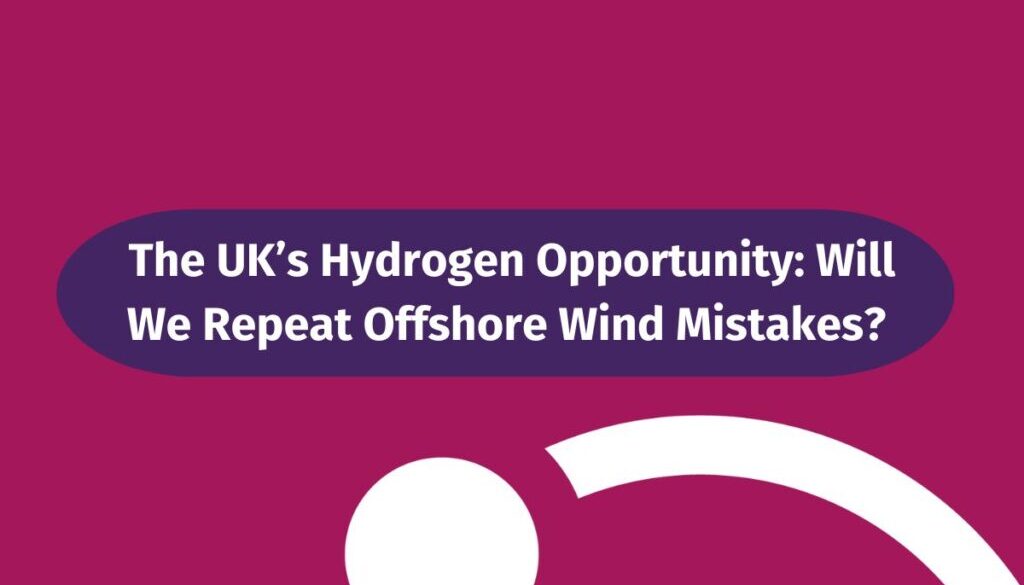The UK’s Hydrogen Opportunity: Will We Repeat Offshore Wind Mistakes?
The economic opportunity presented by hydrogen is well documented, with reports such as the North West Hydrogen Alliance’s Economic Impact Assessment estimating that investment in hydrogen in the region could deliver a £3.4bn boost and 11,500 jobs by 2030. This opportunity coupled with the UK’s mandate to decarbonise its energy system has led to the development of Government support schemes to drive investment into hydrogen.
The UK has a strong track record in the deployment of low carbon technologies, however we have traditionally struggled to establish the same global leadership in the development of the supply chains to support this deployment. This is very clearly demonstrated in offshore wind, where the UK is second only to China in its deployment of offshore wind, however the vast majority of the high value items are imported meaning that we are missing out on a large chunk of the economic benefit associated with these deployments.
We need to ensure that the same mistake is not made with hydrogen. The Government has committed to supporting hydrogen projects across the UK, including several in the North West. Given the sizable investment that we are making in hydrogen, it only makes sense to try to maximise the economic benefit that these projects bring to the country. This means that, where possible, we should be using local contractors and local supply chains and trying to maximise the UK content in projects and ensuring that local projects benefit local communities.
More often than not, this is not happening with the UK’s hydrogen projects. Currently, project developers are not incentivised to use local contractors or local supply chains. When selecting projects to support, the Government places highest weight on cost and deliverability and very little on UK content. As such, developers are likely to use contractors that they have existing relationships with and prioritise lower cost over local content when it comes to technology selection. Similarly, support for UK hydrogen supply chain companies is fragmented and weak when compared to other countries.
There are some simple things that could be done quickly to improve the picture for local suppliers such as the government requiring that project developers applying for funding support conduct a UK supply chain assessment to identify local suppliers and contractors and give them an opportunity to bid for contracts. Government creating central databases of projects, giving supply chain companies visibility of the pipeline of opportunities could also help to drive investment into hydrogen capabilities. Other things may take more time, such as the development of a long term strategic investment programme for supply chain companies to strengthen UK capabilities and create a supportive environment for innovation and scale up.
The North West is home to some of the biggest and most mature hydrogen projects in the world and over the next decade will see billions invested into the sector. Ensuring that that investment benefits local communities and maximises job creation in the region should be a top priority. We have an opportunity to learn from the past, let’s not miss out this time!

